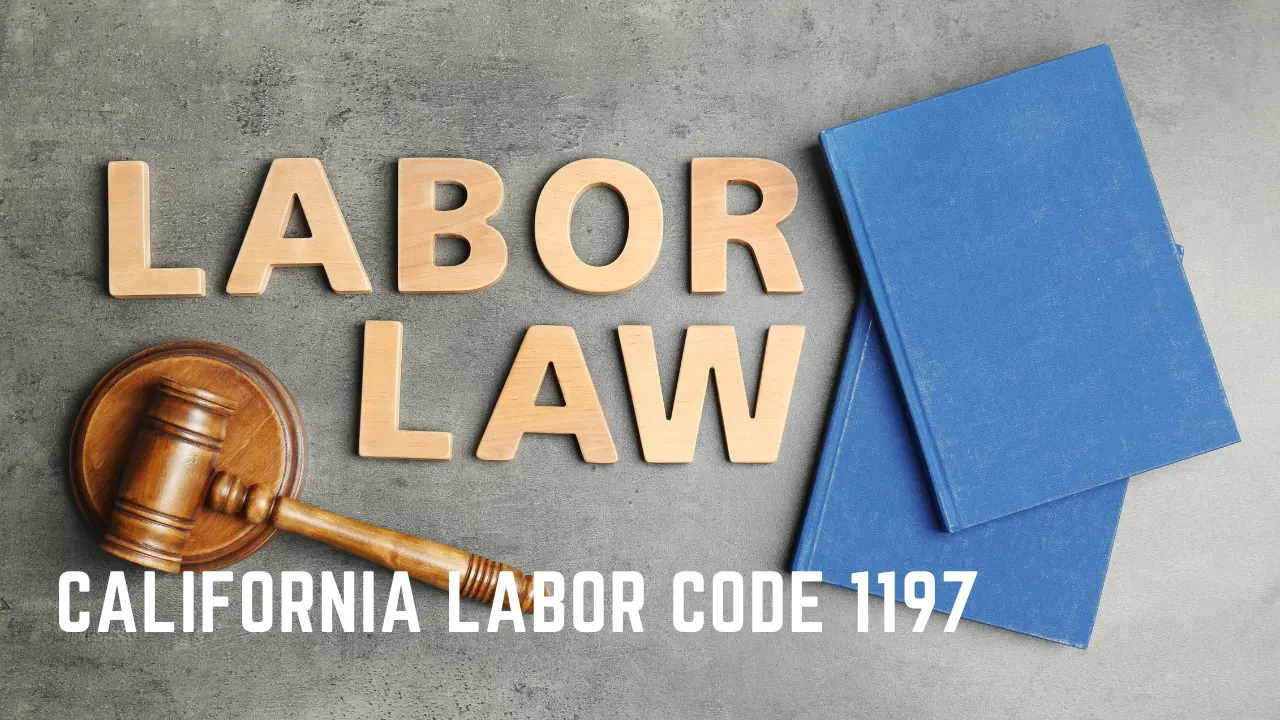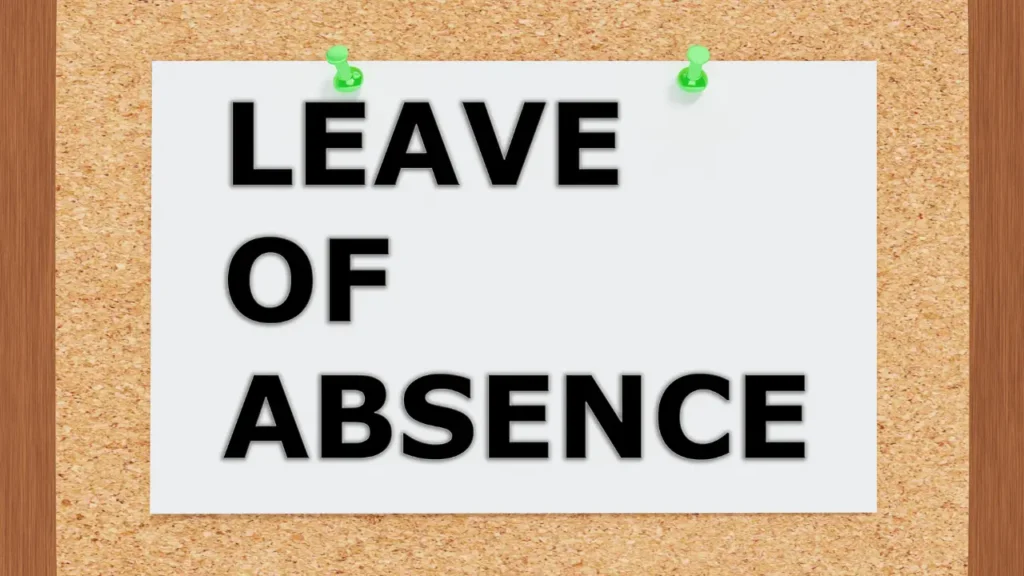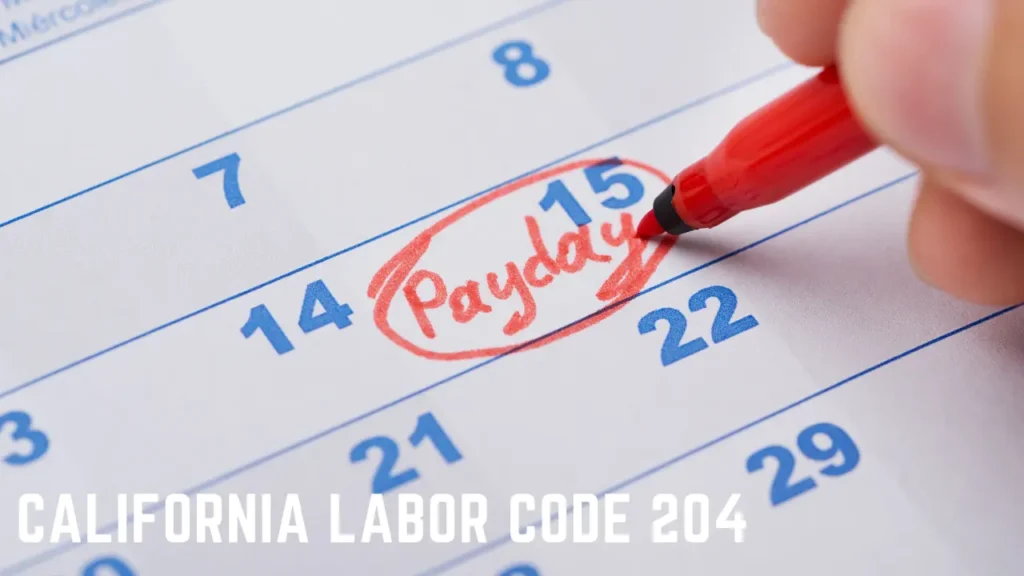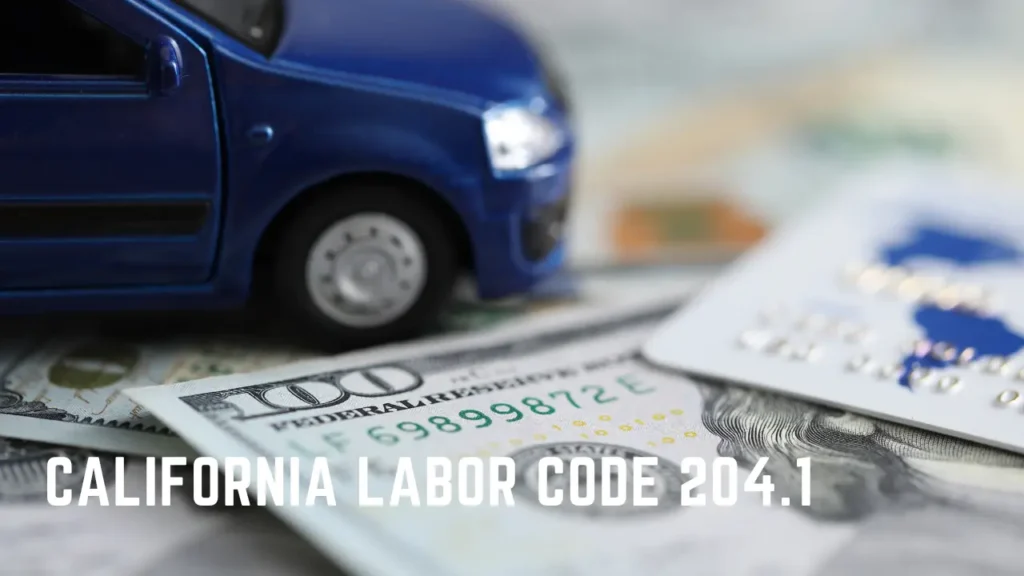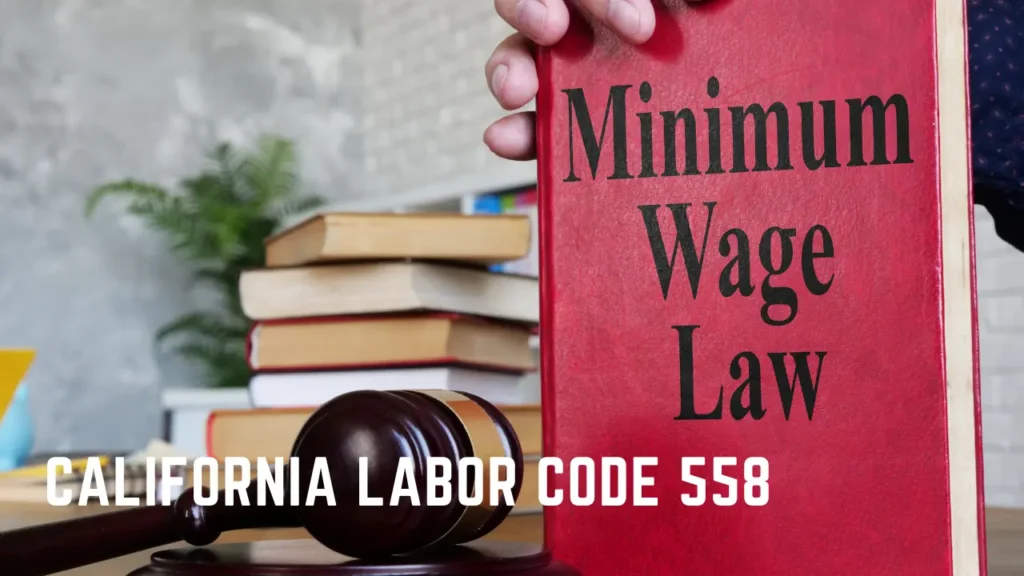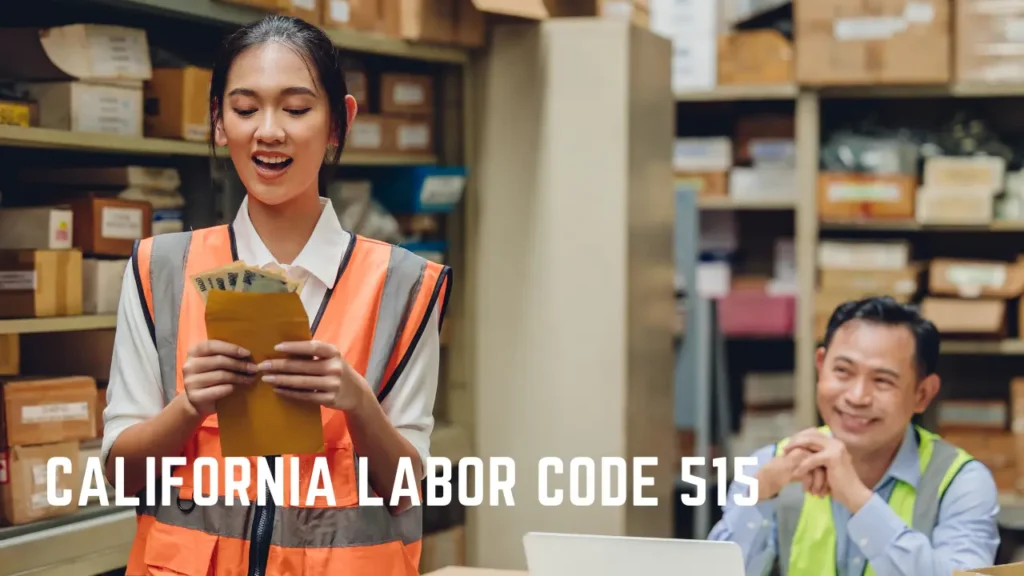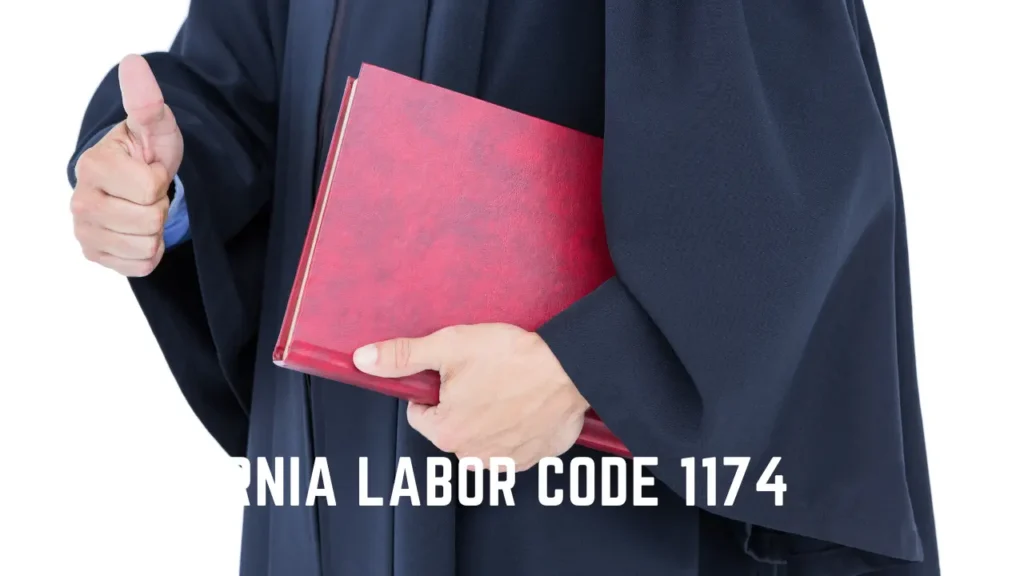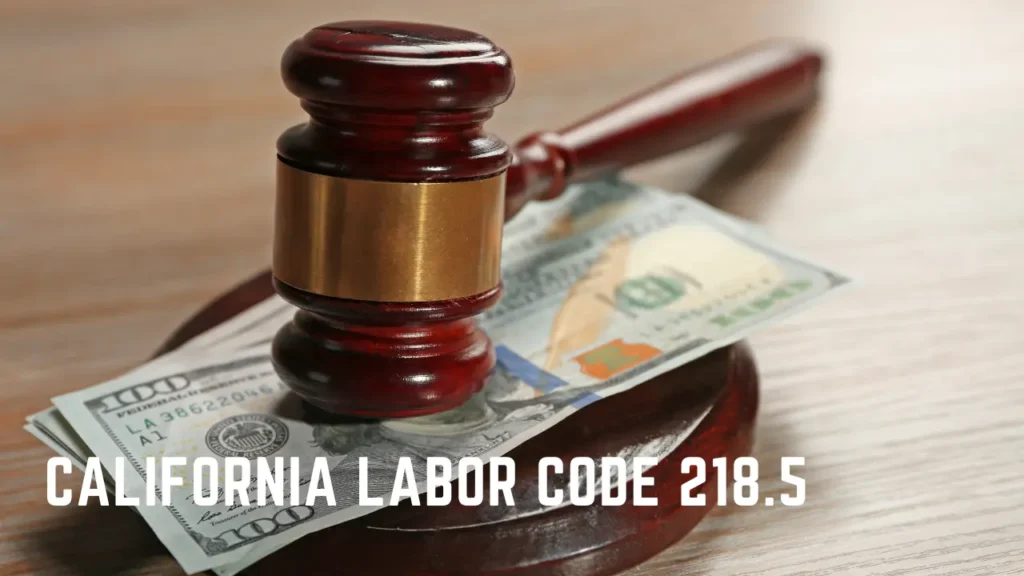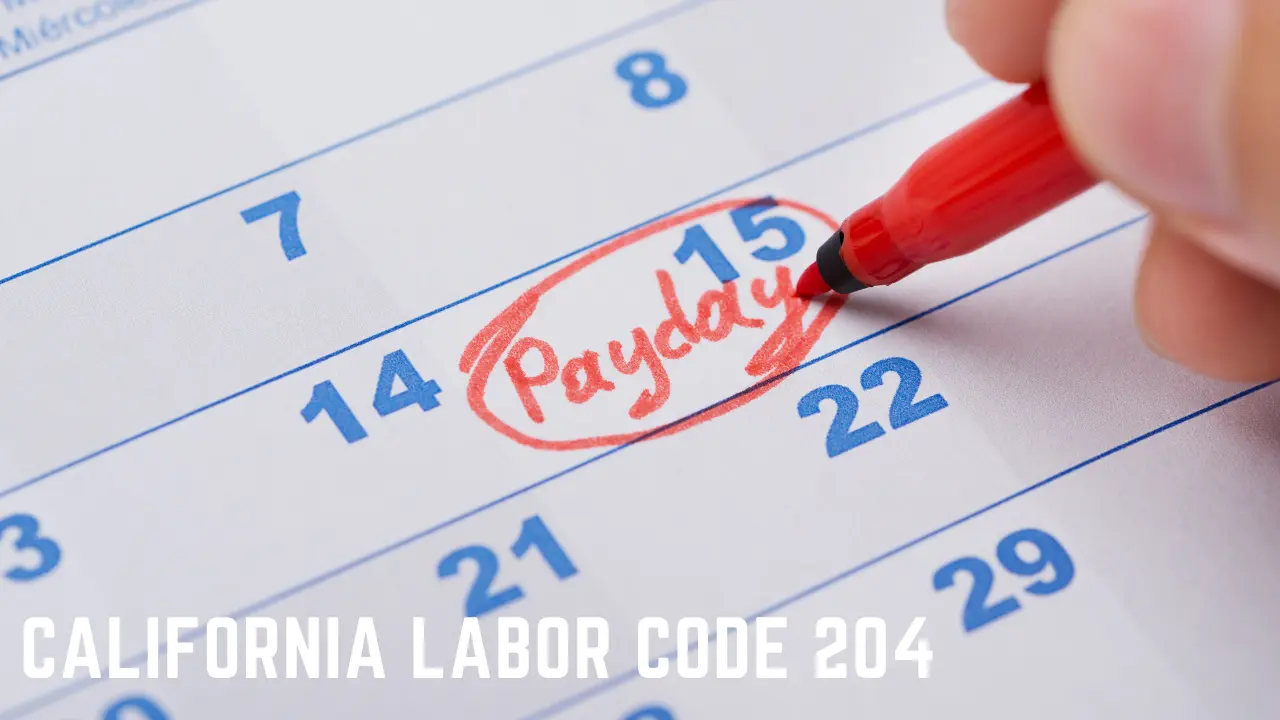Table of Contents
ToggleWhile this appears straightforward on the surface, the law incorporates certain exceptions that can, at times, blur the lines of its application. The interpretation of this statute, its nuances, and its impact on both employers and employees can be unraveled through an examination of relevant legal precedents and additional labor codes, yielding a more comprehensive understanding of this fundamental labor right.
Let us embark on this exploration, with the objective of empowering both employers striving to meet legal obligations, and employees affirming their entitlements.
Understanding California’s Minimum Wage
In navigating the intricacies of California’s minimum wage, it is essential to understand that the state’s Labor Code 1197 LC dictates a mandatory minimum wage for all employees, which, as of 2024, stands at $16.00 per hour. This rate is significantly higher than the federal minimum wage of $7.25 per hour, reflecting California’s commitment to ensuring a decent living wage for its working population.
However, certain exceptions apply, such as for outside salespeople and participants in national service programs. Furthermore, some cities, like San Francisco and Berkeley, have enacted their own local minimum wage rates that are higher than the state’s rate. It is important for both employers and employees to stay informed about these regulations to ensure compliance and to protect workers’ rights.
Legal Framework of LC 1197
Guided by California Labor Code 1197 LC, employers throughout the state are legally bound to pay their employees no less than the stipulated minimum wage. This legal framework ensures workers receive fair compensation, maintaining stability in the labor market.
It’s crucial to note that exceptions apply to certain categories of workers, including outside salespeople and student employees. Violations of LC 1197 can result in legal consequences, such as wage and hour lawsuits. Key cases like Troester v. Starbucks Corp. and Guerrero v. Superior Court have provided legal precedents in this area.
Additional Labor Codes, such as 1182.12, 1171, 1182.4, 1191, and 3353, further define the scope and intricacies of California’s minimum wage laws.
Relevant Legal Cases
Delving into the realm of relevant legal cases, it is evident that precedents such as Troester v. Starbucks Corp. and Guerrero v. Superior Court have played pivotal roles in shaping and enforcing minimum wage laws in California.
- Troester v. Starbucks Corp. (2018):
- This case clarified that California does not follow the federal de minimis doctrine, which excuses employers from paying for brief amounts of off-the-clock work.
- Consequently, employers are required to compensate employees for all hours worked, no matter how minimal.
- Guerrero v. Superior Court (2013):
- This case established that employers cannot use federal immigration law to avoid paying for work already performed.
- It strengthened the protection of undocumented workers under California Labor Code Section 1197.
Other Labor Codes and Minimum Wage
Understanding the entirety of California’s minimum wage laws requires a detailed examination of various labor codes beyond Section 1197 LC. Codes such as 1182.12, 1171, 1182.4, 1191, and 3353 complement and contextualize the primary provisions of 1197 LC.
For instance, Labor Code 1182.12 outlines annual incremental increases to the state minimum wage, while 1191 allows certain individuals with disabilities to earn less than the stipulated minimum. Code 3353 defines who qualifies as an independent contractor, exempt from minimum wage requirements.
These codes, alongside federal guidelines from the U.S. Department of Labor, form a comprehensive legal framework governing minimum wage. Violations can lead to labor board complaints or wage and hour lawsuits, affirming workers’ rights to fair pay.
External Minimum Wage Resources
Navigating through the complexities of minimum wage laws, external resources such as the U.S. Department of Labor serve as valuable tools for both employers and employees seeking to understand their rights and obligations. This organization provides comprehensive information on federal minimum wage standards and regulations.
- U.S. Department of Labor
- Wage and Hour Division: Offers details about the Fair Labor Standards Act (FLSA) and enforcement of federal minimum wage laws.
- Fact Sheets: Provide specific data on industries subject to minimum wage regulations.
Additionally, state labor departments, like the California Department of Industrial Relations, offer crucial guidance on local minimum wage laws.
- California Department of Industrial Relations
- Division of Labor Standards Enforcement: Enforces California’s wage and hour laws.
- Minimum Wage Order: Outlines the state’s minimum wage requirements.
Legal Recourse for Wage Issues
While external resources such as the U.S. Department of Labor and state labor departments offer valuable guidance on minimum wage laws, it is equally crucial to explore the legal avenues available to employees when these wage standards are not met by employers. Employees have the right to file complaints with the state labor department or pursue civil litigation against employers for wage violations.
Under Labor Code 1197 LC, employers who fail to pay the stipulated minimum wage may be subject to penalties, including back pay, damages, and fines. Legal recourse can also involve the representation of an employment attorney to ensure that the rights of the employee are adequately protected and enforced.
Identifying Wage Violations
To properly identify wage violations, employees must first be well-versed with their right to a minimum wage as stipulated by California Labor Code 1197 LC and other relevant labor laws.
Types of wage violations:
- Failing to pay at least the minimum wage
- Not compensating for overtime
- Unpaid meal and rest breaks
- Illegal deductions from wages
Steps to identify violations:
- Regularly check pay stubs for discrepancies
- Compare actual hours worked with hours reflected on the pay stub
- Ensure overtime pay is correctly calculated
- Check if meal and rest breaks were compensated
If any discrepancies are found, employees can take legal action through labor board complaints or wage and hour lawsuits.
Assistance From Jonny Law
In the event of wage violations, such as those previously discussed, the Jonny Law is an invaluable resource for employees seeking legal assistance. This legal firm brings vast experience and knowledge to the table, providing clients with robust representation.
Their team of seasoned attorneys understands the intricacies of the Labor Code 1197 LC and its implications on minimum wage requirements. They have a track record of successfully helping employees navigate through complex wage-related disputes.
From filing labor board complaints to initiating wage and hour lawsuits, the Jonny Law offers comprehensive legal support to ensure that workers’ rights are upheld and they receive their rightful compensation. They truly exemplify legal assistance that is both professional and effective.
Legal Considerations and Policies
Understanding the legal considerations and policies surrounding minimum wage requirements is crucial for both employers and employees to ensure compliance and protect their respective rights.
- For Employers:
- Ensuring adherence to the state and local minimum wage requirements, as per Labor Code 1197 LC, is necessary to avoid legal ramifications. This includes being aware of yearly adjustments and the exceptions that exist.
- For Employees:
- Understanding your lawful entitlements under the LC 1197, such as when to expect wage increases and what to do if underpaid, is crucial.
Legal disputes often arise due to a lack of knowledge or disregard of these policies. Hence, staying informed and vigilant ensures that both parties are treated fairly under the law.
Connecting on Social Media
Jonny Law robust presence on social media platforms such as Facebook, Twitter, and YouTube offers an additional avenue for individuals seeking legal guidance on minimum wage requirements.
These platforms provide immediate and comprehensive information about the nuances of the Labor Code 1197 LC, California’s minimum wage regulation. Our dedicated staff is available to answer inquiries, provide clarification, and guide you through potential legal proceedings.
Our social media channels also feature updates on relevant legal developments and strategies to protect workers’ rights. Moreover, the interactive nature of these platforms allows for real-time engagement, encouraging discourse and awareness about wage issues.
We invite you to connect with us online to access our wealth of legal resources and expertise.
Prompt Legal Assistance
For employees facing potential wage violations, prompt and comprehensive legal assistance is an invaluable resource provided by the Jonny Law . They ensure swift and effective legal representation to uphold the rights of workers and ensure fair compensation.
The services provided include:
- Evaluating the nature and extent of wage violations
- Detailed examination of pay stubs and employment contracts
- Thorough understanding of Labor Code 1197 LC
- Formulating a robust legal strategy
- Filing a claim with the relevant labor board
- Initiating a wage and hour lawsuit if necessary
The Jonny Law commitment to prompt legal assistance ensures that employees do not have to endure wage violations for an extended period, providing a pathway to justice and fair compensation.
Form Submission Process
Navigating the form submission process is integral for employees seeking legal assistance from the Jonny Law for wage violations. To initiate this, a comprehensive form must be duly filled out, providing pertinent information such as the employee’s name, email, phone number, employer details, and a succinct description of the employment issue.
In addition, relevant documents such as recent pay stubs can be attached for review. Once submitted, the firm typically responds within a quick timeframe, often within 5 minutes. This process ensures prompt legal help and is a vital step towards securing justice for wage violations. It is crucial to provide accurate and complete information to facilitate an effective investigation and subsequent legal action.
Importance of Contact Information
While accurately filling out the form submission is a crucial initial step, the provision of valid and up-to-date contact information carries equal weight in ensuring a successful wage violation claim.
- Accurate Contact Information:
- Facilitates swift and effective communication between the parties involved.
- Avoids potential delays or misunderstandings in the legal proceedings.
- Up-to-date Contact Information:
- Ensures important updates or changes in the case status reach you in a timely manner.
- Allows your legal counsel to reach out for additional information or clarifications when needed.
In essence, your contact information serves as a vital link in the wage violation claim process. It not only expedites the process but also enhances the chances of a successful claim.
Exploring Additional Legal Services
Delving into the range of legal services offered by Jonny Law , it becomes clear that their expertise extends far beyond minimum wage violation claims, encompassing areas such as labor law, wrongful termination, wage-hour laws, discrimination, and workers’ compensation.
The firm’s comprehensive approach to labor law issues ensures protection of employee rights in all facets of employment. Their wrongful termination expertise helps aggrieved employees seek redress for unjust dismissal, while their knowledge of wage-hour laws guarantees that employees receive due compensation.
Their discrimination practice fights against prejudice in the workplace, ensuring a fair and equitable work environment. Lastly, their proficiency in workers’ compensation ensures that employees injured on the job receive the due benefits.
Their holistic approach to labor law issues provides comprehensive protection to employees.
Conclusion
In conclusion, understanding California’s Labor Code 1197 LC and its implications on minimum wage is pivotal for both employees and employers. This understanding ensures fair compensation for labor and promotes legal compliance among businesses.
It is equally important to explore legal resources and assistance for any wage discrepancies. This knowledge empowers workers and strengthens California’s commitment to progressive labor laws, fostering a balanced and equitable work environment.

